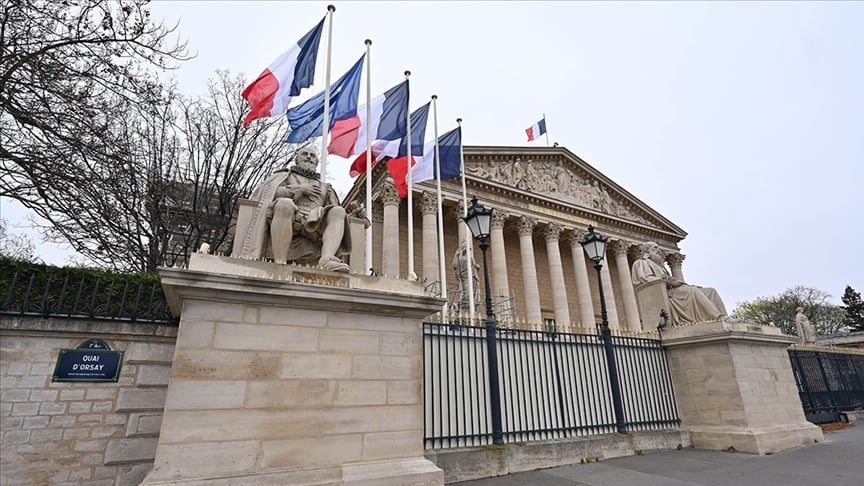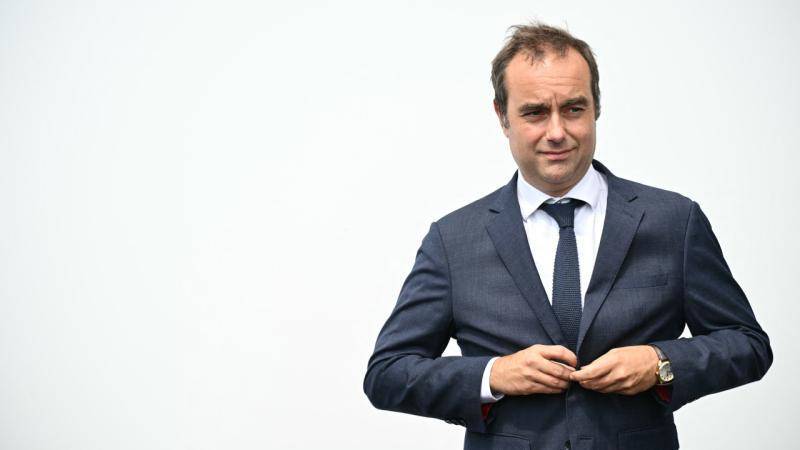Ozan Doğan Avunduk wrote: Why can't the government crisis in France be resolved?

The government formed in France last Sunday collapsed the following morning with the resignation of new Prime Minister Sébastien Lecornu. Five days after his resignation, Lecornu announced that he had accepted the reassigned prime ministerial position "out of necessity." However, the government, announced on the evening of Sunday, October 12, already faces the risk of a vote of no confidence.
Having changed government four times since the 2024 summer general elections, France is experiencing one of the most critical periods in its political history. Here are four reasons for the government crisis in France:
Following President Emmanuel Macron's dissolution of parliament, France held general elections in June and July 2024. Macron's supporters, known as the "presidential majority," the left-wing New Popular Front (NFP) alliance, and the far-right National Rally (RN) make up the main groups in parliament.
In addition, the Republicans on the right and the Socialists and Ecologists closer to the center-left are in the minority, but they influence the continuity of the government and the cabinet through shifting alliances and votes.
The failure of any of the three main factions, whose ideological positions differ greatly, to secure an absolute majority in the National Assembly has led to the formation of weak minority governments in the new legislative session. Macron's first choice for prime minister was former Foreign Minister Michel Barnier , who took office in September 2024. Barnier, a member of the small right-wing faction the Republicans (LR), faced fierce opposition from both the right and left when he invoked the constitutional right to pass a budget without a vote. Barnier's government was overthrown by a vote of no confidence.
Then, in December 2024, 74-year-old François Bayrou, a figure close to Macron, was appointed prime minister. However, neither the left nor the right-wing opposition accepted Bayrou's plan, which envisioned cuts to the public budget. Bayrou became the second prime minister to resign in the new legislative term.
Macron's latest appointee, Sebastien Lecornu, took over from Bayrou on October 6, emphasizing that "there must be ruptures within the administration, not just in words, but in substance." However, when incompatibility emerged among some of the confirmed cabinet members, Lecornu submitted his resignation to the president.

Five days after his resignation, Lecornu announced his reappointment by Macron. The new government was announced on the evening of Sunday, October 12, following a several-hour meeting with the president at the Élysée Palace.
Prime Minister Lecornu, 39, is a center-right figure who stands out not for his ideology but for his efforts at compromise. However, the New Popular Front, which sits on the far left of the political spectrum, and the far-right National Rally announced they would issue a vote of no confidence as soon as the government was announced. Opposition voices from ecologists and the more centrist Socialist Party also emerged even before the government was announced.
The disagreement between the groups stems from differences in views on budgets, retirement and taxation.
In France, the 2025 fiscal year budget proposal failed to be approved within the constitutional deadline. With the new government's ability to hold its own, the 2026 budget is also currently on hold. The government's debt has reached nearly 114% of GDP.
Government instability in France is causing budget instability and increasing market unrest. Following Lecornu's resignation announcement, the Paris Stock Exchange fell by over 2%.
The political proposals for closing the budget deficit among parliamentary groups vary widely. The Macronist bloc and the center-right propose cuts in public spending, while the left-wing opposition strongly opposes them. Trade unions and various factions of left-wing parties took to the streets and organized strikes in September to protest Bayrou's budget.
Left-wing movements across the spectrum, from the New Popular Front to the Ecologists and Socialists, are advocating the "Zucman tax" as an alternative method for closing the budget deficit. Named after Gabriel Zucman, an economist who studies social inequality, the tax represents a minimum wealth tax levied on the "ultra-rich." This tax applies to households with assets exceeding €100 million, or approximately 1,800 people in France.
The New Popular Front, one of the most powerful groups in parliament, is making the tax's approval a condition for negotiations with any future government. However, given the government proposals and the current cadres, such a law is currently unlikely to be enacted.
Finally, the pension reform, enacted in 2023 without parliamentary approval, is another fundamental issue that has drawn criticism from the opposition, from right to left. The reform, which linked retirement to a points system and postponed the retirement age, fueled mass protests on the streets of France in 2023.
The new government program, to be announced today, is expected to state whether the pension reform remains in effect or if it will be postponed. The outcome of the reform will also determine the government's continued existence.
Although President Macron turned to the right to form a government following the parliamentary outlook for 2024, tensions between Macronists and Republicans have been rising in recent weeks. The rapid collapse of the first Lecornu government, the shortest-lived in French history, is also linked to the fractured alliance between the center and the right and the 2027 presidential election.
When the first cabinet was announced last week, Bruno Retailleau, the hawkish leader of the Republicans and former Interior Minister, announced on X that the new government had failed to keep its promise of a "break with Macronism" and that he would not join the government. Retailleau stated that his reason for not joining the government was that Bruno Le Maire, the economy minister of seven years who had become a symbol of the Macron regime, would remain in the cabinet. The newly elected Prime Minister Lecornu subsequently resigned the next day, facing the threat of being overthrown after failing to secure a vote of confidence.
Retailleau's decision, which had a bombshell impact on French politics, can be linked to the upcoming 2027 presidential election. By protesting the government, the conservative leader has made a move to present himself as a principled right-wing alternative that doesn't compromise with the Macron regime. Retailleau appears to be aiming to revitalize Republicans, in the tradition of Chirac and Sarkozy, and make them a dominant figure in right-wing politics.
As a result, the Lecornu I government failed not only because of parliamentary arithmetic but also because key political figures put medium-term presidential strategies ahead of current alliances.
However, it's worth noting that, despite Retailleau's opposition, the Lecornu II cabinet, announced on the evening of October 12th, included six Republican MPs. This situation is also likely to cause conflict within the French right.
So, while representatives of the center and right wing are developing various strategies for power, what's happening on the left? Why isn't the possibility of appointing a leftist prime minister being discussed?
Macron's political/ideological preferences and the fights within the left provide the answer to this question.
In fact, left-wing parties had formed a broad electoral alliance to contest the June 2024 elections. This alliance, called the New Popular Front, included the Insurgent France movement, which advocates for radical social and economic reforms, the Ecologists, and the French Communist Party, as well as the historically influential Socialist Party and left-wing parties closer to the center.
However, President Macron did not give the task of forming a government after the elections to the prime ministerial candidate agreed upon by the left alliance.
In the following period, differences of opinion between Rebellious France and the Socialist Party, one of the main components of the election alliance, ranging from economic policy to foreign policy, created tensions between the two parties.
Ties between the two parties finally came to a breaking point in December 2024, when Socialist Party Secretary General Olivier Fauré was hosted at the presidential palace to meet with Macron regarding the government. Jean-Luc Mélenchon, founder of the Revolt France movement and former rival of Macron, accused the Socialist Party of treason.
However, the key to resolving the power crisis today lies with the Socialists, the group most likely to reach a compromise. The path to compromise lies in pension reform. Even the centrist Socialist Party (PS) has announced that it will not support the new government unless this reform is abandoned. President Macron, whose need for legitimacy and compromise has increased with the government crisis in France, last week raised the possibility of postponing the reform.
If the group, like other components of the left, does not propose to bring down the government, the Lecornu II government may remain in office for a while longer.
Medyascope





